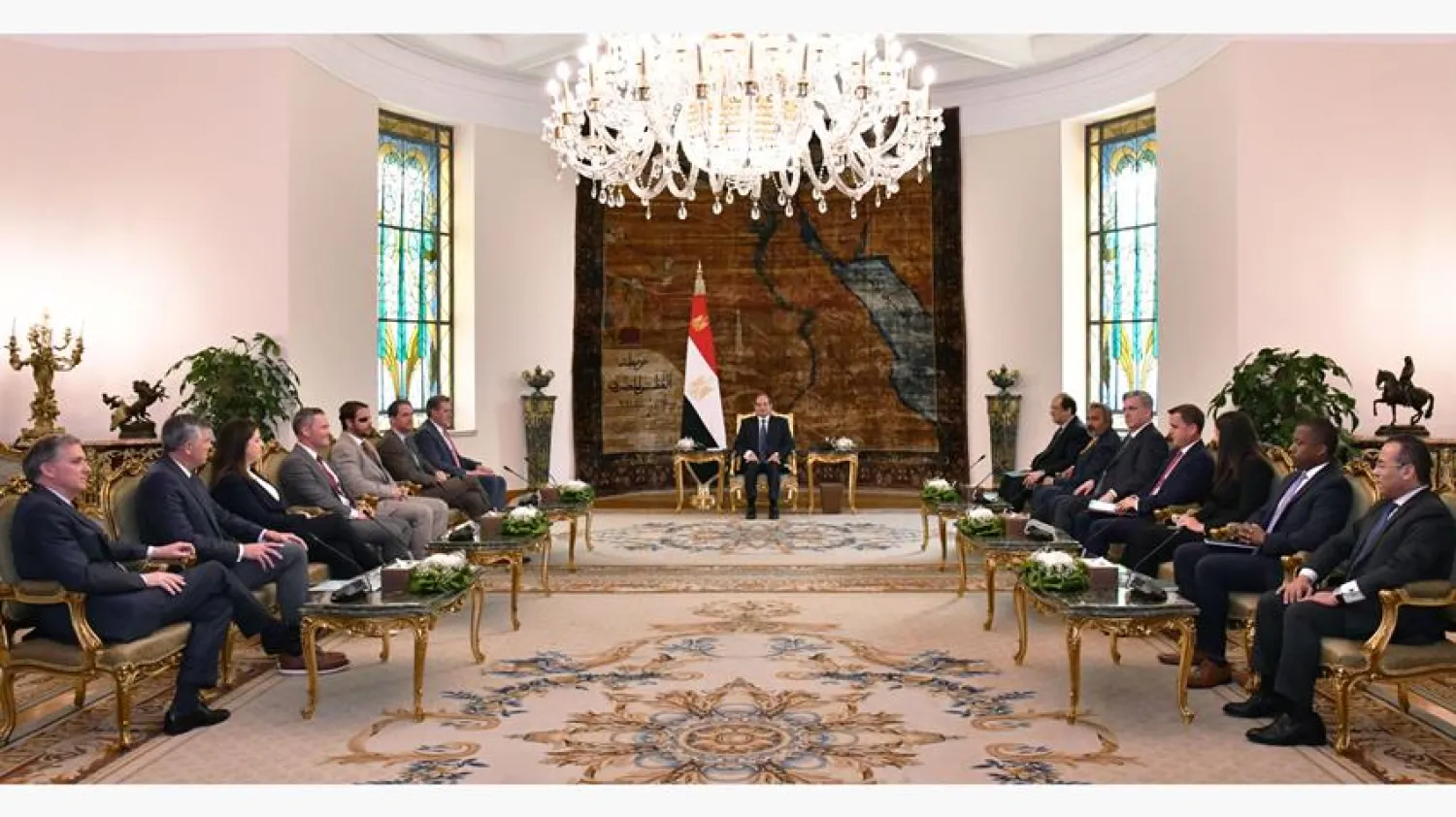Egyptian President Abdel Fattah Al-Sisi on Saturday asserted the need for a "permanent and comprehensive ceasefire" in Sudan, and for a peaceful dialogue that leads to the completion of a transitional path, acceptable by the Sudanese.
Sisi received a large delegation from the US House of Representatives Permanent Select Committee on Intelligence, chaired by Mike Turner.
The meeting was also attended by the Director of the Egyptian General Intelligence Service, Major General Abbas Kamel, and US Charge d'affaires in Egypt, John Desrocher.
Presidency spokesman, Ahmed Fahmy, said the meeting asserted the solid strategic partnership between Egypt and the US.
Fahmy indicated that the US delegation highlighted Egypt's critical role as a cornerstone for stability and peace in the region.
They also referred to Cairo's leading role in combating terrorism, which requires further strengthening cooperation and consultation between the two countries to mitigate escalating risks and challenges at the international and regional levels.
The President engaged in an open discussion with the delegation members about regional crises that threaten the pillars of states, putting the capabilities of people at existential risk. They warned against further exacerbation of humanitarian and economic conditions for millions of people in the region.
According to a spokesman, the meeting addressed recent developments in the Palestinian matter.
Sisi stressed the importance of resuming negotiations between the Palestinians and Israelis to reach a just and comprehensive settlement of the Palestinian crisis under international references.
The President referred to the relentless Egyptian efforts to maintain calm between Palestinian and Israeli sides and the initiatives to reconstruct Gaza.
He confirmed that a just and comprehensive peace would open new and broad horizons in the region in the interest of development and prosperity for all peoples.
Meanwhile, the Egyptian Prime Minister, Mostafa Madbouly, met in the UK with several heads of government and participating delegations during the coronation ceremony of King Charles III at Buckingham Palace.
The meetings addressed the recent developments in Sudan besides regional and international issues.
Madbouly explained Egypt's relentless efforts to reach a quick solution to the Sudanese crisis that would protect Sudan and its people from the negative repercussions of the current conflict.
The government said in a statement that Madbouly reviewed Egypt's efforts to receive Sudanese nationals across the border.









